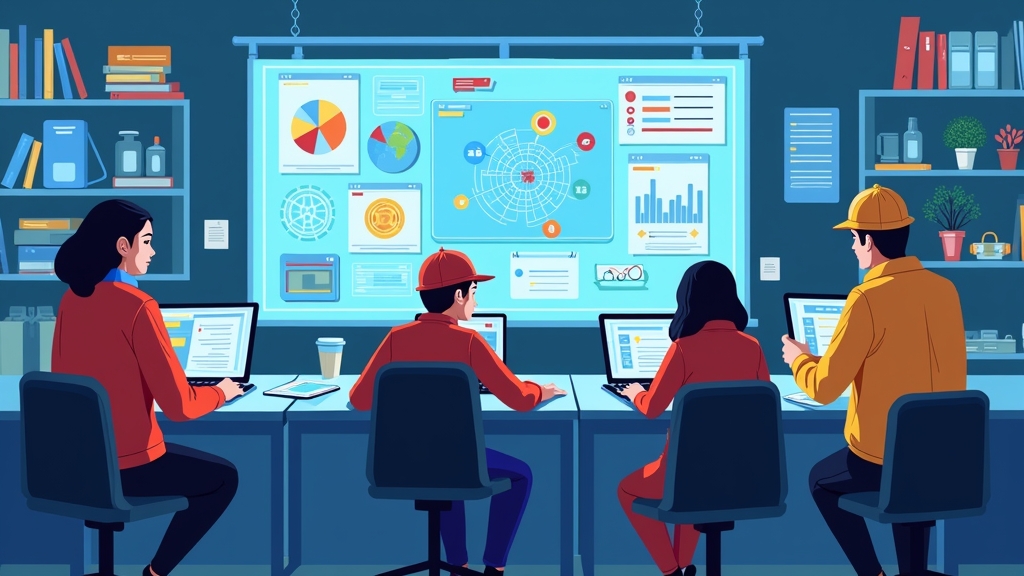Advertising
In recent years, the online course market has grown exponentially, offering a multitude of opportunities for those looking to improve their skills or even enter a new career. In the field of electricity, this trend is no different. Both people wishing to start from scratch and professionals looking to update their knowledge find online courses a practical and accessible learning alternative. In this article, we'll explore everything about online electrician courses, their advantages, how to choose the best course and even the possibility of joining an electrician's university. Let's find out how this path can transform your professional life.
What are online electrician courses?
Online electrician courses are educational programs offered over the internet that aim to train individuals in the various areas of electricity. Different institutions, from technical schools to large universities, offer these courses. They range from basic notions for laypeople to specializations for experienced professionals. Flexibility is one of the main advantages of these courses, allowing students to study at their own pace and combine their studies with other daily activities.
Online courses can vary in terms of duration and complexity. Some offer certifications that are recognized in the job market, while others only provide a diploma of completion. It is crucial to check the credibility of the institution before enrolling, as well as ensuring that the course content meets your professional needs and expectations.
Another important aspect to consider is the type of support offered. Quality online electrician courses usually offer discussion forums, live question sessions with instructors and up-to-date teaching material. These resources are essential to ensure effective learning and the practical application of the knowledge acquired.
Finally, many of these online courses include practical modules that can be done at home, using electricity kits sent by the institution or purchased separately. Practice is essential in any technical field, and electricity is no exception. So when choosing a course, make sure it offers enough opportunities for practice.
Benefits of taking an online electrician course
Online electrician courses offer a number of benefits that make them an excellent choice for anyone wishing to enter this field. Firstly, the flexibility and convenience are second to none. You can study anywhere and at any time, as long as you have internet access. This is ideal for those who already work or have other responsibilities, such as looking after the family.
Advertising
What's more, online courses tend to be more affordable than face-to-face courses. Without the need to travel or pay for physical infrastructure, costs are reduced and these savings are passed on to students. This means that you can get a quality education without compromising your budget.
Another significant benefit is the variety of options available. With the popularization of online courses, there is a wide range of electrical courses, from basic to advanced, covering different specializations. This diversity allows you to choose a course that exactly fits your interests and career goals.
Finally, online courses often offer access to a global community of students and professionals. This network can be invaluable for professional development and the exchange of knowledge. Participating in online discussion forums and study groups can enrich your learning experience and open doors to networking and job opportunities.
How to choose the best online electrician course
Choosing the right online electrician course can make a significant difference to your training and professional success. The first step is to clearly define your objectives. Are you looking for an introduction to electricity, a professional certification or a specialization in a specific area? Being clear about your goals will help narrow down your options.
The reputation of the institution offering the course is another crucial factor. Research the institution, read reviews from former students and check whether the course is recognized by regulatory bodies or professional associations. A course with a good reputation offers more assurance that you will receive a quality education.
Analyze the course curriculum carefully. Make sure it covers the topics you want to learn and that it offers a balance between theory and practice. Also check that the course includes assessments and regular feedback, which can be crucial for monitoring your progress and understanding of the materials.
Last but not least, consider student support. A good online electrician course should offer efficient technical support, access to instructors for questions, and additional learning resources such as videos, tutorials and practical exercises. Robust support can significantly improve your learning experience and help you overcome any difficulties that may arise during the course.
Electrician's university: the next step in education
For those looking to delve even deeper into the field of electricity, joining an electrician's university can be an excellent option. Unlike online courses, which generally offer shorter and more specific training, a university offers a more comprehensive and in-depth education, covering both theoretical foundations and practical applications.
University programs often include classroom lessons, laboratory projects and internships in companies, which provide a rich and diverse learning experience. In addition, a university degree can open doors to higher and better paid positions in the job market, as well as research and teaching opportunities in the field of electricity.
However, entering an electrician's university requires a significant commitment in terms of time and finances. It's important to be prepared for the investment required and the years of study ahead. Many universities offer funding options and scholarships, so it's worth investigating these possibilities.
Whether your goal is to become an expert in the field of electricity or to occupy leadership positions, a university education could be the right path. It not only expands your technical knowledge, but also develops critical skills such as complex problem solving, teamwork and effective communication.
Comparing online courses and universities for electricians
The choice between taking an online electrician course or going to university depends on several factors, such as career goals, available resources and preferred learning style. Online courses are ideal for those looking for flexibility, cost-effectiveness and faster training. They are especially useful if you are looking to acquire specific skills or update yourself on new technologies.
On the other hand, universities offer a solid and comprehensive foundation in electricity, as well as research and career development opportunities that may not be available in online courses. If you are interested in a complete academic education or in pursuing an academic career, university may be the best choice.
The job market can also influence your decision. While many employers recognize and value certificates from online courses, some positions may require a university degree. Checking the requirements of the jobs you're aiming for can help determine the most suitable educational path.

Regardless of the choice, both online courses and university electrician programs offer a promising path to a rewarding career. Assessing your personal and professional circumstances will help you make the best decision for your future.
Future trends in electrician education
As technology advances, electrician education continues to evolve. Emerging technologies such as virtual reality and artificial intelligence are beginning to be incorporated into online courses, making learning even more interactive and effective. These technologies allow for realistic simulations that help students understand complex electrical concepts and apply this knowledge in practical situations.
In addition, the focus on renewable energies and energy efficiency is growing, which means that electricity courses are adapting to include these topics in their curricula. Professionals with knowledge of renewable energies are increasingly in demand, and this trend is set to continue in the coming years.
Another trend is the personalization of learning. Using data and analytics, courses can be tailored to meet the individual needs of each student, providing a more engaging and effective learning experience. This not only improves learning, but also increases student satisfaction with the course.
Global collaboration is another trend on the rise. Online courses and universities are increasingly connected with international companies and institutions, offering students opportunities to learn and work in a global context. This is particularly valuable in an increasingly interconnected world, where understanding different cultures and practices can be a competitive advantage.
Conclusion
Online electrician courses and electrician universities offer different but equally promising ways to enter and specialize in the field of electricity. While online courses offer flexibility and accessibility, universities provide more comprehensive training and research opportunities. The choice between them will depend on your personal and professional goals, available resources and learning preference. Regardless of the choice, the important thing is to invest in an education that prepares you for a constantly evolving job market, where up-to-date skills and knowledge are essential for success.
FAQ
1. What do you need to enroll in an online electrician course?
Generally, you need access to a computer and the internet. Some courses may require basic knowledge of mathematics.
2. Are online electrician courses recognized by the market?
There are many, especially those offered by renowned institutions. Check that the course has recognized certification.
3. How long does it take to complete an online electrician course?
The duration varies, from a few weeks to several months, depending on the course.
4. Are there any free online courses for electricians?
Yes, many platforms offer free courses, although they may not offer certification.
5. Do online electrician courses offer student support?
Most offer discussion forums and access to instructors for questions.
6. What is an electrician's college?
It is an institution that offers higher education in the field of electricity, including undergraduate and postgraduate courses.
7. What is the difference between an electrician's technical course and university?
A technical course is shorter and focuses on practical skills, while university offers a more in-depth and theoretical education.
8. Is it possible to do all the practical modules of an online course at home?
Yes, many courses send kits or instructions for home practice.
9. How important is accrediting an online course?
Accreditation guarantees that the course meets recognized educational standards, increasing its credibility.
10. Is a university degree necessary to become an electrician?
Not necessarily, but it may be required for more senior or specialized positions.
11. How do online courses deal with the practice required in electricity?
Through simulations, practical kits and sometimes partnerships with laboratories.
12. What skills are acquired in an online electrician course?
Circuit diagnostics, electrical repairs, reading electrical diagrams, etc.
13. Are the online courses up to date with new technologies?
Renowned institutions regularly update their curricula to include new technologies.
14. What is the average cost of an online electrician course?
It can vary from a few hundred to thousands of reais, depending on the course and the institution.
15. Do online electrician courses offer networking?
Yes, through forums, webinars and study groups, promoting interaction between students and professionals.



